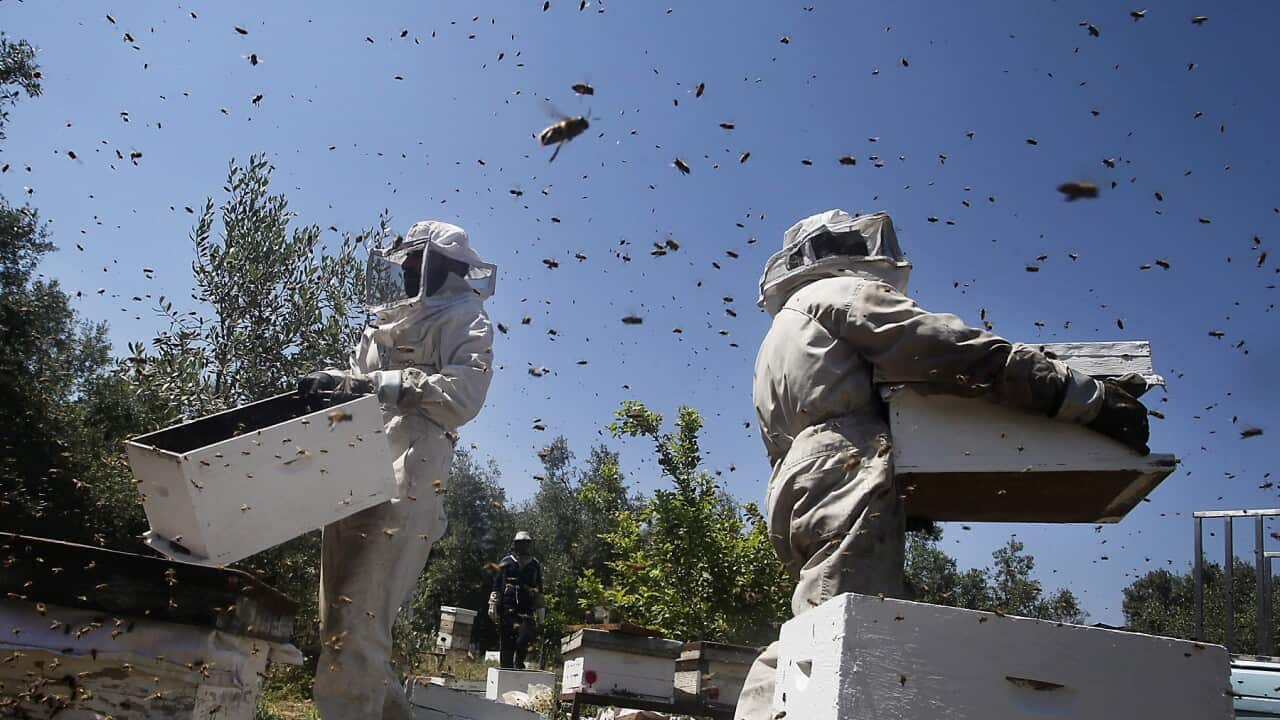TRANSCRIPT:
Beekeeping.
It’s an age-old occupation that relies on tried and tested techniques and the expertise of the beekeeper for success.
"So when you open a hive, you say hi with a little bit of smoke. The smoke is causing them an instinct to go and collect honey and to ignore us."
But honeybees around the world are dying off in large numbers, which experts blame on a combination of factors: parasites, pesticides, starvation, and climate change.
Enter, technology.
Sharoni Shafir is a professor in the Entomology Department at the Hebrew University of Jerusalem.
"Beekeeping has been around for many, many years but the whole Earth has changed a lot. Culture is changing very quickly. I mean, we don’t know what will be the future of beekeeping, but it seems like the kind of changes that happen in agriculture - where we have now very precise agriculture, smart agriculture, much more technological agriculture, in terms of sensing plants and the soil and humidity and so forth - and the kind of changes that have happened in poultry or cattle growing, are also happening in beekeeping."
BeeHero is a Tel Aviv and California based company that is developing smart tech for the industry.
The CTO is Yuval Regev.
He says the company uses sensors inside a hive to analyse the colony’s health.
"The sensor located in the centre of the hive and its main purpose is to say what is the current situation inside the hive. Basically he translates the communication between the bees to a language the beekeepers can understand. If you like this is exactly what Google Translate do between two languages. So we translate bee language to human language."
The sensors inside the hives measure temperature, humidity, and sound.
Those metrics are then transmitted to the cloud through a gateway lodged outside a group of four hives.
The beekeeper gets this information directly to their phone or computer and, through artificial intelligence and machine learning, they receive an outline of the state of the hives and are flashed with alerts if there is a problem.
Beekeeper Doreet Avni says that kind of information saves crucial time and makes finding any issues easier and more efficient.
"With our technology we can see very early if something is wrong in the colony. So for example in case of a pesticide or case of queen loss or any other problem that the colony has, the beekeeper can come and do something very quickly. Otherwise they can come three, four, five weeks too late."
Regev says it's no niche innovation.
The company says it has its sensors in operation in more than a quarter of a million beehives on five continents that deliver beekeepers smart hives with what they term “precision pollination”.
He says bees contribute over $200 billion dollars to the global economy from the crops that they pollinate - and that humanity’s food security depends on the insect, with every third bite humans take coming from pollination by bees.
"We have to ensure that we have more and more bees in order to feed the world. I don’t think we can do it without technology and technology helps to save, and helps the bees for better pollination and better everything that we rely on bees (for). So I totally believe that we will see all of the beekeepers in the world use this or other kind of technology in their hives."













